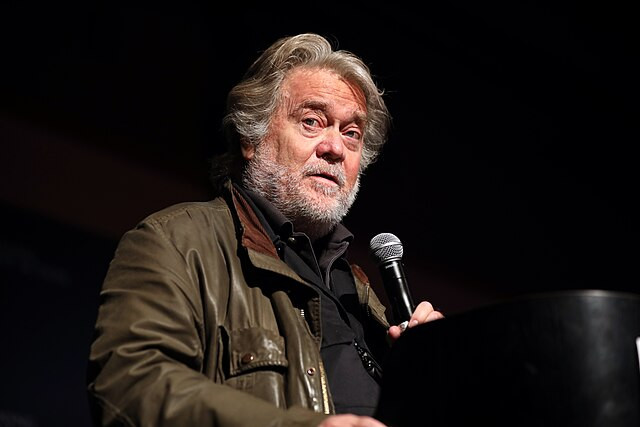A divided federal appeals court panel in Washington has rejected Steve Bannon's emergency request to remain free while he appeals his conviction for contempt of Congress. This decision moves the former Trump advisor a step closer to beginning his four-month prison sentence on July 1. The ruling, issued late Thursday, leaves Bannon with the option to seek intervention from the Supreme Court.
The three-judge panel of the U.S. Court of Appeals for the D.C. Circuit voted 2-1 against Bannon's bid. Judges Cornelia Pillard, appointed by Barack Obama, and Bradley Garcia, a Joe Biden appointee, formed the majority, concluding that Bannon's appeal did not present a "close question" that warranted relief. In dissent, Trump appointee Justin Walker argued that there is indeed a significant question regarding the interpretation of the contempt statute, suggesting that the Supreme Court might view Bannon's case differently.
Walker wrote, "Because that question may well be material, Bannon should not go to prison before the Supreme Court considers his forthcoming petition for certiorari." This dissent provides Bannon with a glimmer of hope as he prepares to petition the nation's highest court.
Bannon's legal team had requested the appeals court to expedite its decision by June 18, to allow time to seek relief from the Supreme Court if necessary. The denial of his release echoes a similar outcome faced by Peter Navarro, another former Trump advisor. Navarro, who is currently serving his sentence for contempt of Congress, took his bid for release to the Supreme Court, where Chief Justice John Roberts issued a rare opinion explaining the decision to deny the request.
In their motion, Bannon's lawyers referenced Roberts' opinion on Navarro, suggesting that procedural issues cited in Navarro's case were not applicable to Bannon. They argued that the Chief Justice's detailed response indicated a substantial interest in the merits of such cases. However, federal prosecutors countered that the speculation around Roberts' opinion did not guarantee the Supreme Court's interest in Bannon's appeal.
Federal prosecutors opposed Bannon's motion for release, stating that his case does not warrant a departure from the general rule that convicted defendants should begin serving their sentences promptly. With the appeals court ruling against him, Bannon's next move will be to seek emergency relief from the Supreme Court.
Judge Carl Nichols, a Trump nominee, had earlier granted the prosecutors' request to send Bannon to prison after the appeals court upheld his conviction. Nichols' decision set the stage for Bannon's current legal battle to stay out of prison while his appeal progresses.
Bannon was convicted nearly two years ago on two counts of contempt of Congress for defying a subpoena from the House committee investigating the January 6 Capitol attack. His defense argued that he did not ignore the subpoena but was engaged in good-faith negotiations with the committee, relying on his attorney's advice that he could not testify or produce documents due to Trump's invocation of executive privilege.
Bannon's lawyers contend that the case raises serious legal questions likely to be resolved by the Supreme Court. They also argue that there is a "strong public interest" in allowing Bannon to remain free as he plays a significant role as an advisor in Trump's 2024 presidential campaign.
In the coming days, Bannon's legal team will submit a petition for certiorari to the Supreme Court, seeking to overturn the appeals court's decision. The high court's response will determine whether Bannon must begin serving his sentence or remain free while his legal battles continue.






